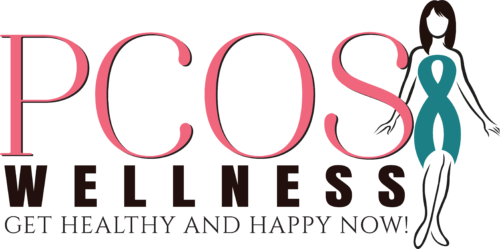
Considering Alternative Care: Thoughts From a Mental Health Perspective
Fluctuating hormones…limited research…dietary recommendations that are all over the place (ranging from vegan to Paleo)…. These are all things that characterize life with PCOS. It’s confusing to say the least. And, somehow we’re supposed to make all the correct choices for our health.
Given the vagaries of PCOS treatment (really, how many divergent opinions can we extract from a gynecologist, an endocrinologist, a reproductive gynecologist, and a dietician or two?!) and the limited success that treatments often have, it can be really tempting to think about abandoning western medicine (a.k.a. allopathic or traditional medicine) and going in search of alternative care.
Alternative care includes, but is definitely not limited to: homeopathy, meditation, nutritional coaching or consultation with unlicensed individuals, muscle testing, psychological counseling from unlicensed individuals, yoga, spiritual counseling, reiki, and EFT.
We often think of acupuncture, chiropractic, osteopathy, massage, and naturopathy as part of the alternative spectrum, but in fact they’re generally well-regulated, licensed professions. And many of them have been studied extensively, and received acceptance from both traditional and alternative practitioners.
I’ve been through hundreds of treatments myself, both traditional and alternative. I’m highly sympathetic to your frustration and feelings of hopelessness.
And while I’m personally all for exploring the alternatives, I’m also cautious.
Just because something is “natural” doesn’t mean it’s safe. I, for example, actually believed the “dietician” some years ago who told me that, if I just gave them a good trial of a couple of weeks, I’d ultimately have no problem digesting the nuts to which I’d been told I was allergic (and the swelling in my throat when I ate them seemed to verify that, but I had faith!).
Nuts are great, so I dutifully tried all sorts of tree nuts, and developed a bad enough reaction to walnuts that my allergist thought I’d better keep an Epi-Pen with me at all times. As in, I could have a potentially fatal allergic reaction to them, so I’d better be prepared. Epic fail on the natural/alternative nutrition approach, in other words.
The list of problems is endless:
- HCG injections that back-fire and result in more weight gain
- poorly regulated, excessive, and/or inappropriate supplements
- homeopathic treatments that result in unmitigated symptoms, up to and including depression-inducing insomnia, diarrhea, constipation, and other digestive disturbances
- unnoticeable impacts from treatments or supplements that a practitioner swears are working, but just taking time
- malnutrition
- exercise-induced damage of all sorts
- allergic reactions
This is not to say that western medicine doesn’t have most of the same potential side effects, not to mention quite a few that are equally if not more acute, but I think it’s important to know what you’re dealing with.
To be clear here, I’m not necessarily poo-pooing non-traditional medicine as a whole. What I am trying to emphasize is that there is a big, big difference between regulated and non-regulated professions, and there is a big, big difference between well-documented, thorough research and faith in a convincing (however alluring!) story.
Keep in mind that a shady or misinformed professional might lose their job, their credentials, or (worst-case scenario) face legal repercussions. But you, on the other hand, could risk your life.
What I worry about from the mental health side of things is:
- Not wanting to take prescription medication for depression when it’s clearly indicated that it may be fatal
- The pursuit of hope – and subsequent failure to achieve the desired results – can result in a sharper drop-off of hope – right into hopelessness, which is a predictor for suicidality
- Wasting money, time, and other resources can contribute further to feelings of hopelessness
- Unknown/unstudied impacts on the brain, mood, and our future health
- Shame or embarrassment about not trusting one’s doctor enough, leading to keeping the alternative care a secret, which can impair your M.D.’s ability to provide appropriate treatment
- The endless pursuit of alternatives may impair the process of reaching acceptance about your condition, its permanence, and it’s long-term health implications
- Information overload is already prevalent in our society; unfortunately, the alternative care world is full of even more phenomenal amounts of inaccurate, misleading, and anecdotal evidence than the world of Western medicine.
I want you to be empowered, educated, and make informed decisions.
I want you to know your options, both Western/allopathic and alternative. I want you to take charge of your health, and use your health care dollars wisely. I want you to use your time, energy and hope in ways that have a meaningful impact on your health.
I want you to be well.
Gretchen Kubacky, Psy.D. is a Health Psychologist in private practice in West Los Angeles, California. She is an inCYST Certified PCOS Educator and the founder of PCOSWellness.com. She specializes in counseling women and couples who are coping with infertility, PCOS, and related endocrine disorders and chronic illnesses.
If you would like to learn more about Dr. Gretchen or her practice, or obtain referrals in the Los Angeles area, please visit her website at www.DrGretchenKubacky.com, or e-mail her at AskDrGretchen@gmail.com. You can also follow her on Twitter @askdrgretchen.
Session expired
Please log in again. The login page will open in a new tab. After logging in you can close it and return to this page.
